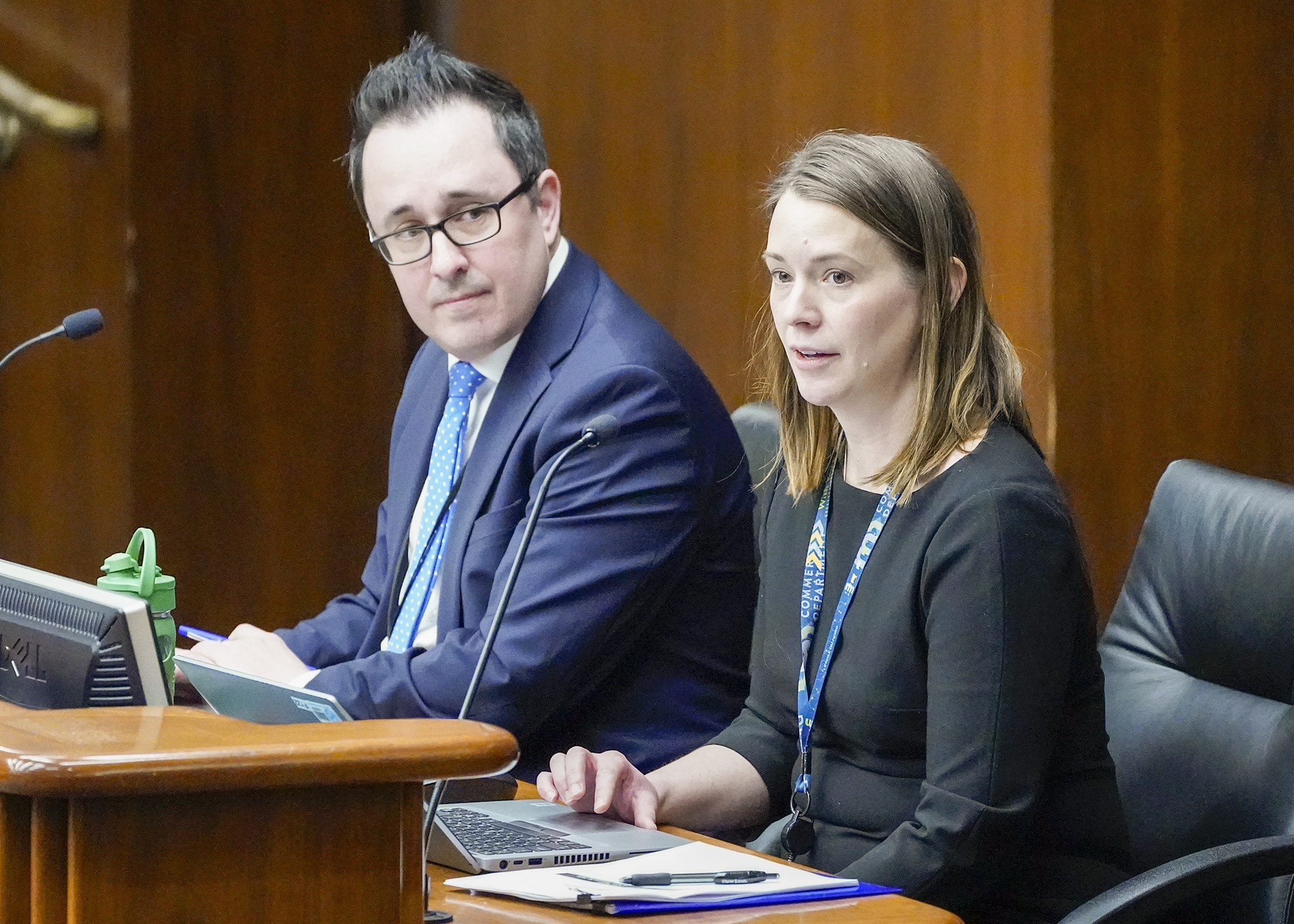House lawmakers open debate on health insurance public option

A State Office Building hearing room was at capacity Tuesday with lobbyists and members of the public, many of whom wore T-shirts branded with either “Faith in Minnesota” or UNIDOS Mn. One woman wore a League of Minnesota Voters button.
They were all there to receive a report ordered by a 2023 law to examine the feasibility of expanding MinnesotaCare to allow individuals making too much money to otherwise qualify.
No action was taken by the House Health Finance and Policy Committee.
According to a letter accompanying the report, it is assumed that between 107,000 and 151,000 individuals would enroll in a public option. It is further assumed that those individuals at present do not have health insurance or have plans purchased through the public market.
“We obviously have a very real problem in our health care system,” said Rep. Tina Liebling (DFL-Rochester), the committee chair. “We have many people who are not being able to get access to health care or are going … broke because they can’t access health care. We obviously have health providers who are struggling in different parts of the state. The real question before us with this is ‘Does this set the right direction for us?’ … If not this, then what, because I think it is clear doing nothing is really not an option. If you have a health care concern, you need help now.”
Milliman Inc., a nationally known actuarial firm, presented two options, costs of which to the state would be between $86 million and $364 million, not including administration, operation, and implementation costs. Both would essentially be managed care models.
A Department of Commerce study presented to the committee found that a 33-year-old woman living in the Twin Cities metropolitan area would pay a premium of $107.83 a month — following a state subsidy — in 2027 through a public option plan offered through MinnesotaCare or purchased through MNsure.
That plan would provide more benefits than at present, said Peter Brickwedde, assistant commissioner of government and external affairs. A federal subsidy currently in place is expected to expire in 2026.
Related Articles
Search Session Daily
Advanced Search OptionsPriority Dailies
Ways and Means Committee OKs House budget resolution
By Mike Cook Total net General Fund expenditures in the 2026-27 biennium will not exceed a hair less than $66.62 billion.
That is the budget resolution approved Tuesday by the House Ways...
Total net General Fund expenditures in the 2026-27 biennium will not exceed a hair less than $66.62 billion.
That is the budget resolution approved Tuesday by the House Ways...
Minnesota's budget outlook worsens in both near, long term
By Rob Hubbard It looks as if those calling for less state spending could get their wish, judging from Thursday’s release of the February 2025 Budget and Economic Forecast.
A state su...
It looks as if those calling for less state spending could get their wish, judging from Thursday’s release of the February 2025 Budget and Economic Forecast.
A state su...